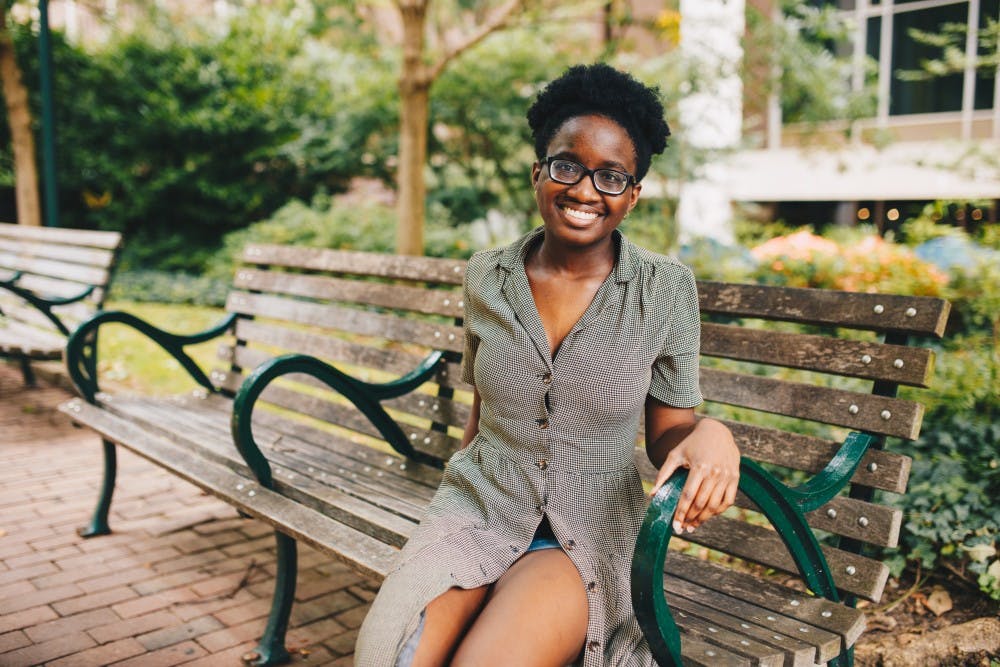William Wordsworth called poetry “the spontaneous overflow of feelings” originating from “emotion recollected in tranquility.” This is exactly what Juliet Lubwama (C ‘22) strives for: a collected space in which to reflect and encapsulate her emotions. And that space, for her, is found in poetry.
And Juliet is no amateur poet. She was recognized by Scholastic Awards as one of the five 2017 Northeast National Student Poets. Google searching her name reveals a Ted talk, a poetry jam session, and countless other videos documenting her work. A freshman this year, she chose Penn over both Harvard and Yale because of the writing program at the Kelly Writer’s House where she will further hone her skills.
Juliet’s poetic journey started as early as fourth grade after she read a poem by Maya Angelou. From there, she was captivated and began writing on general themes, such as love and happiness. As identity came to play a larger role in her life, her literary output expanded to encompass the experience of being a black girl. In more recent years, and with more experience under her belt, her poems have focused on politics, social issues and black womanhood.
Poetry, for Juliet, starts with the emotions. Not the blank piece of paper nor the pen filled with ink. And it’s a cathartic exercise. “The creative process of poetry writing gets [me] closer to a place of healing and understanding,” she describes. Always willing to excavate and confront her feelings, her emotions shine through in her work. It’s difficult to confront one’s own inner world; it’s even harder to fully understand one’s own state of mind. While the emotions translate to words, they’re at first not entirely coherent. But when she calms down, she returns to the poem, dissecting her feelings and playing around with the structures.
“I edit my poems a lot so it’s definitely not a static thing,” Juliet says. “The most static thing would just be the emotion at its core. Everything else, from the characters to the narrative, and to the stylistic choices, could change throughout the process.”
The words then become line breaks; they become white spaces; they become rhymes; they become alliteration. In the midst of this transformation, the emotions and ideas are then conveyed on a level words alone cannot convey. With the genuine truth of her emotion, her lines deliver powerfully and sincerely. They’re at once direct in message, yet subtle in nature. Each poem is like an emotional time capsule, through which she is able to see where she is and who she is, and through that, so do we. “Reading a poem could be just a few moments of your time but you could entirely understand what the poet tries to tell you,” she says.
All the changing components serve to communicate a certain emotion. Juliet experiments with different forms and poetic structures to become more familiar with what she likes in poetry; she then picks what parts of each structure that she wants to employ in her own writing. This is how Juliet develops her style.
In one of her poems, "Onomastics," Juliet ruminates over her emotions as she explores her dual identity as both a black American and a Ugandan American. Her character, Marjani Anna, is a symbol of a character stuck between two identities and two worlds. “It’s just like how I felt when I was younger,” Juliet says. “I created a new character because I wanted to take a variety of experiences that Ugandan Americans might face that is not inclusively limited to my own. I wanted this poem to resonate with children of African immigrants and remind them that they’re not alone.”
This is how she does it. This is how the national student poet works her magic, turning her ideas and emotions into powerful, relatable words.







